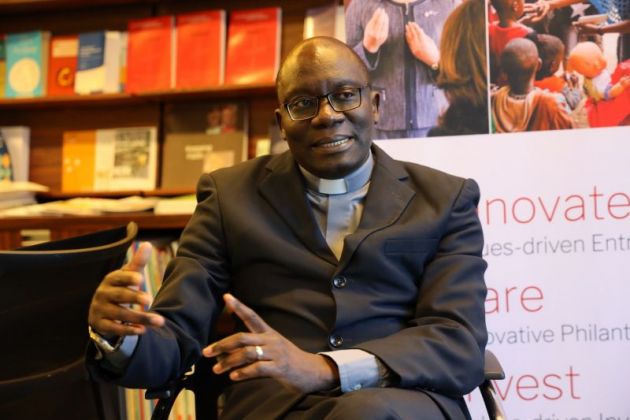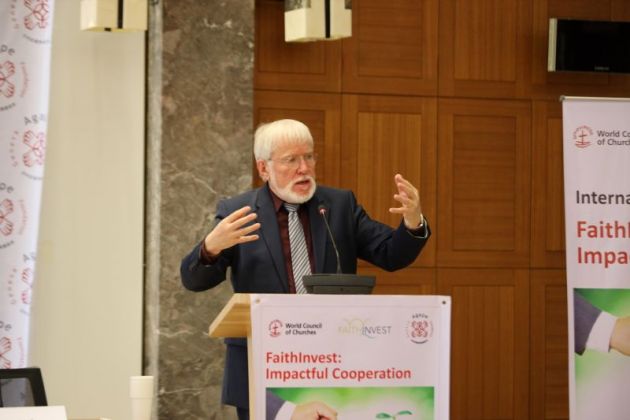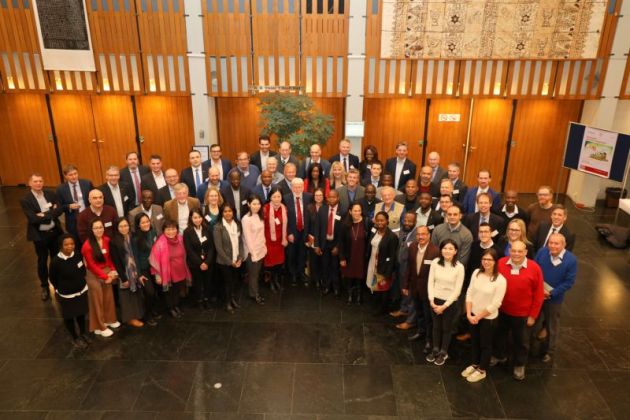Bridging the gap between faith and investment discussed by investors, asset managers, developers, churches

How can the gap between faith and investments be bridged?
Cooperation between different groups was the focus of recent a two-day conference held at the World Council of Churches in Geneva, Switzerland with participants from all parts of the planet.
It was a rare meeting of the likes of asset managers and clergy, and the solution at the heart of success was how to collaborate for success based on Christian principles.
The conference titled: "FaithInvest: Impactful Cooperation" was sponsored by the Geneva Agape Foundation, World Council of Churches (WCC), and the UK-based group FaithInvest.
Christian churches and other communities of faith are all economic actors. They and have a vital role to play in the emergence of an economy of life, WCC deputy general secretary Dr. Isabel Apawo Phiri said in remarks.
Frédérique Seidel, manager of the WCC-UNICEF Global Partnership delivered the message on behalf of Phiri at the conference, which included key members of the ACT Alliance such as DanChurchAid.
The 17-18 January conference at the WCC drew 80 participants, including high-powered investors, representatives of international organizations such as the World Bank, the State of Geneva, and of course, representatives of churches and church-based groups.
The two key opening speakers were Christoph Stückelberger, executive director of the Geneva Agape Foundation, and Martin Palmer, president of FaithInvest, from Bristol in the United Kingdom.
'BEING INNOVATIVE'
"We want to be innovative. We have a mandate to be innovators in this world from the giver of life and strengthen cooperation. We want to be entrepreneurial in our spirit," said Stückelberger in his opening remarks.
Phiri in her opening remarks said, "Many, though not all, of us who are gathered here today are investors in one way or another.
"What brings us together is our deeply faith-rooted concern for those who are in need, and for our beautiful planetary home – increasingly threatened by the greatest challenge confronting humanity today: climate change. It is a human-induced phenomenon that we know hits the poor the hardest and is deepening socio-economic inequalities."
Palmer for his part said that for many years there appeared to be a dichotomy between faith and investment.
"That gap is now closed, partly because the faiths, and particularly Christianity, have found that naturally there is a link. Secondly, because events have somewhat overtaken us," said Palmer referring to the climate change crisis.
"It's up to us to actually make the work of business, the work of God," said Palmer.
"The major religions in the world own about 14 to 15 percent of the total financial market. Now, that's at the big institutional level. At a smaller level, diocesan, temple, synagogue, etc. it probably takes us to 20 percent," said Palmer.
"Religious believers are, whether we like it or not, a major factor in investment wealth."
The organizers of the conference said that churches and church-related institutions with their pension funds and capital invest billions of dollars worldwide.
"How can these investments become more consistent with the Christian values and have a positive impact on development?" formed much of the debate.

Bright Mawudor, head of finance and deputy general secretary of the All Africa Conference of Churches (AACC), spoke on sustainable church investments in Africa.
"For the greater part of its nearly 60 years in existence, the AACC relied heavily (almost 80 percent) on grants from its overseas partners for its programme delivery with little in-built mechanism or strategy for financial independence," said Mawudor.
FROM AID RECIPIENT TO DONOR
With re-branding the AACC and a financial sustainability strategy, he said the AACC has an ambitious plan to make the organization a 'donor' organization by 2025.
Rev. Emmanuel Chikoya, general secretary of the Council of Churches in Zambia, echoed similar sentiments for his group representing most of the churches in his southern African country.
Hubert Miyimi Muwana, CEO of State Oil and Gas Company in the Democratic Republic of Congo, spoke of where environmentally less-harmful investments could be made to help his country catch up with global development. Cui Ruitong, a new board member of the GAF Foundation, who is from China, but studies in London, also spoke.
Other speakers reflected on how to build innovative bridges using the United Nations and Geneva as a global center. There was also input from Nicholas Niggli, deputy secretary general for the State of Geneva, and Roland Schatz, founder and CEO of the UN Global Sustainability Index Institute, who gave pointers on how to link faith and business.

